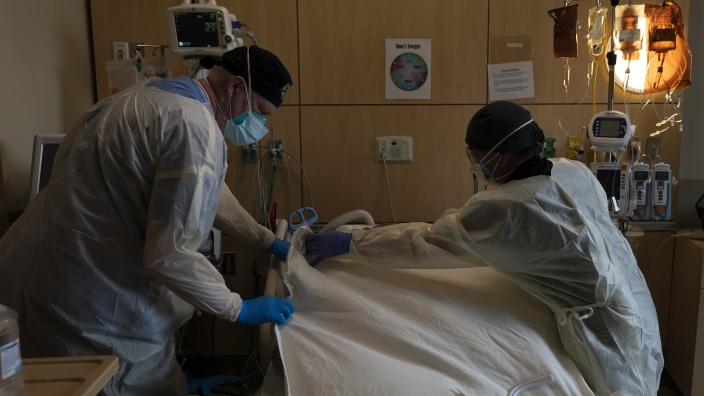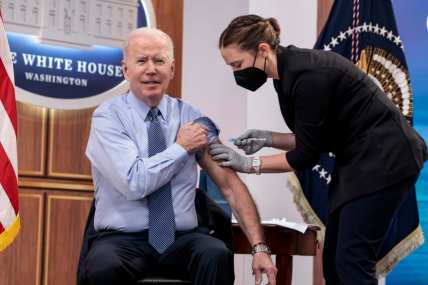Black people not adequately represented in studies on effects of long COVID, study finds
"The State of Black America and COVID-19" warns Blacks aren't being studied enough in trials, treatment programs, and registries.
Long COVID is a phenomenon reportedly being experienced by millions of people who contracted COVID-19 and survived the illness — only to battle symptoms far after their initial diagnoses.
A new 18-page report called The State of Black America and COVID-19: A Two-Year Assessment is warning that Black Americans are being studied for long-term disease yet ongoing racial disparity in health means they are also likely experiencing a lack of access to treatment. Additionally, Black people are not being sufficiently studied in trials, treatment programs, and registries, it says.

The report, prepared by the Black Coalition Against COVID, examines the consequences of the pandemic for Black America, part of a national effort that features participation from Black medical schools, the National Urban League and other faith-based and community organizations.
Black Americans were disproportionately affected by coronavirus infection, hospitalization, and death from the novel virus, which swept across the globe beginning in early 2020. Long COVID was identified much later, its name a descriptor for chronic symptoms that linger after the acute infection. Its indicators could include fatigue and cognitive problems.
“We expect there are going to be greater barriers to access the resources and services available for long COVID,” one of the study’s authors, Dr. Marcella Nunez-Smith, told The New York Times. Nunez-Smith is the director of Yale University’s health equity office and a former chair of President Joe Biden’s health equity task force.
She said that “so much of even getting a long COVID diagnosis is tied to having had a positive test right at the beginning.” That could be challenging, the doctor contended, because of disparities in testing at the beginning of the pandemic.
Dr. Nunez-Smith says long COVID will continue to require additional study and resources specific to Black Americans because “like everything else, without intentionality, we’re not going to get to equity there.”
The report notes that “there is already evidence of disparities in diagnosis and access to treatment, which suggests an increased likelihood of future disparities.”
Additionally, the BCAC report warns that Blacks are “more likely to report experiencing anxiety and/or depression because of the pandemic,” compared to whites. “Substance use disorders have also increased due to pandemic stressors, especially among those with existing disorders. One study identified that opioid overdoses increased among Black Americans by as much as 52.1%,” it noted — and the number decreased 24% among whites.
Dr. Reed Tuckson, who leads the coalition, writes in the introduction of The State of Black America and COVID-19, ”As of this report’s release, we understand that there remains unfinished work yet to do to save and protect our communities from the COVID-19 pandemic. We commissioned this two-year report because we believe it is important to examine the consequences of the pandemic for Black America.”
“However, because we have a profound respect for Black life and survival, and indeed for all life, we understand that even after the pandemic resolves, the disparities in health status experienced by the Black community prior to the pandemic must be urgently addressed,” Tuckson urged. “In fact, as this report documents, those disparities have actually worsened over the past two years.”
TheGrio is now on your TV via Apple TV, Amazon Fire, Roku, and Android TV. Also, please download theGrio mobile apps today!

